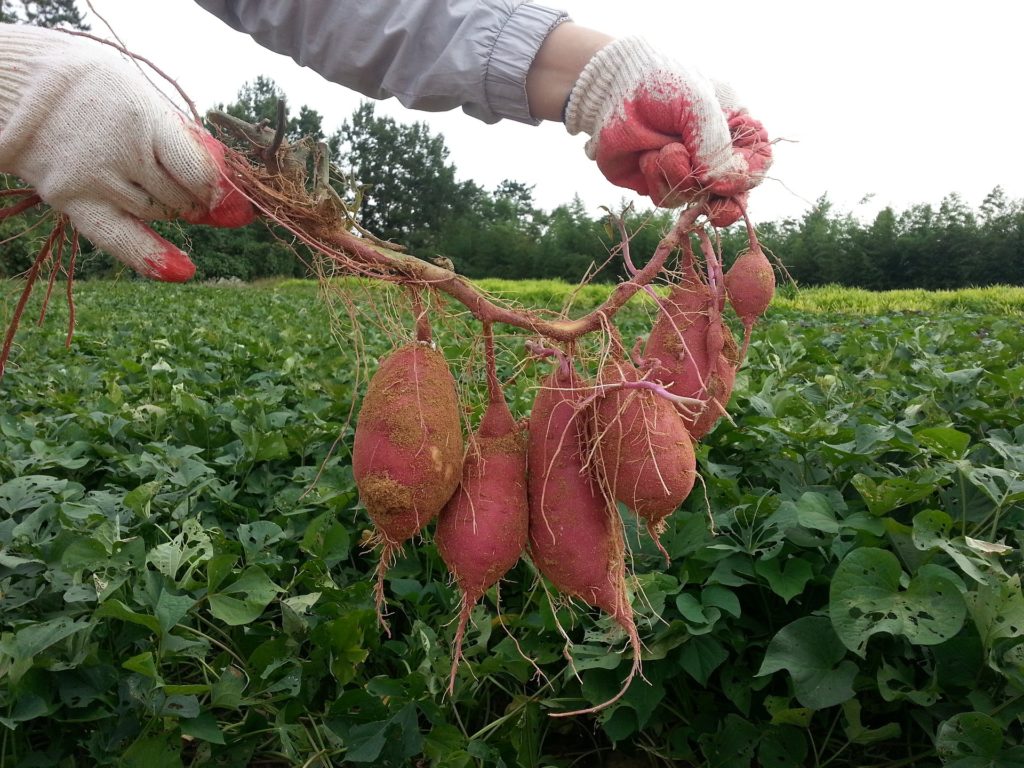
By Clint Thompson
North Carolina’s top vegetable crop will be under the microscope as part of a $5 million, four-year research project funded by USDA-NIFA’s Specialty Crop Research Initiative (SCRI).
Craig Yencho, sweet potato breeder at N.C. State University, is part of an 18-member team studying management solutions for the guava root-knot nematode. He said it was introduced into North Carolina two or three years ago. It has a wide host range, which includes sweet potato, and was observed on a couple of sweet potato farms in North Carolina.
“It is a very destructible little beast. It’s fairly aggressive,” Yencho said. “In addition to colonizing the adventitious roots, it colonizes the storage roots, the actual potato that the sweet potato makes. It can really blemish them quite a bit. It results in almost like mumps, if you will, little bumps along the surface of the storage root.”
Management Options
The grant focuses on a wide range of management solutions. These include the development of nematode-resistant varieties, hopefully, within four to six years. Other strategies focus on nearer-term solutions, including crop rotations and applications of nematicides, though there’s few chemistries registered for the pest or for sweet potato.
Weed scientists are part of the team as well and will study the potential of weeds serving as hosts for the nematode. And since the crop is stored year-round to provide a yearly supply, scientists need to monitor it after harvest and see if the nematode impacts in storage.
“We know a lot, but we still have a lot yet to learn about it. I would say we’re wrestling with it really aggressively. We want to get out in front of this as best we can.”
The nematode’s impact on sweet potatoes is especially concerning for North Carolina farmers. Not only does North Carolina produce between 50% and 65% of the country’s sweet potato crop, it is also a major exporter, especially into the United Kingdom. An efficient management plan is needed, so growers won’t lose those export options.
“Our growers are really sensitive about losing those export markets due to the presence of this little beast.”









